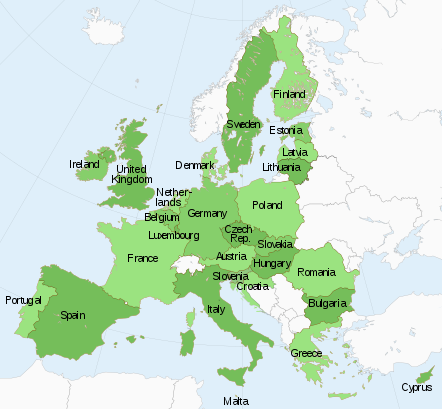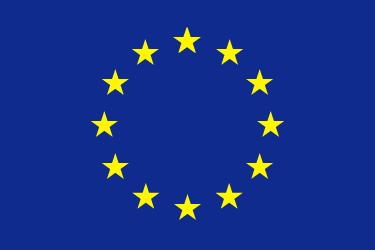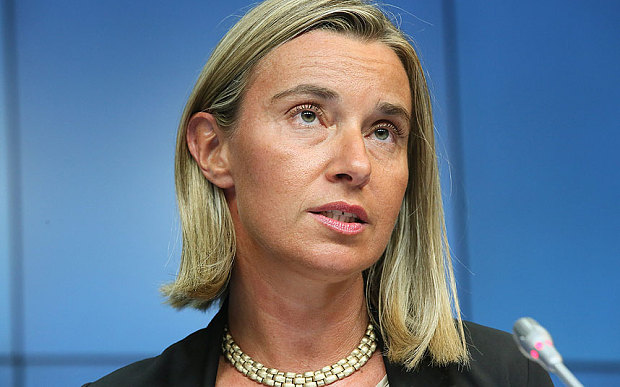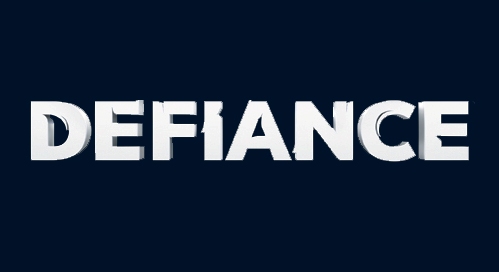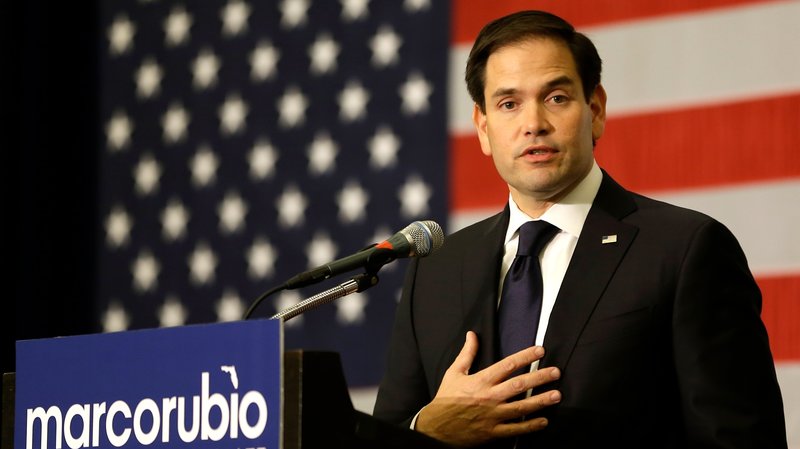Is USDA Defying Congress (And Senator Rubio) By Preventing Farm Bill MAP/FMD Funding?
Four Months After Farm Bill Signed Into Law, Not One Request To Use US$201 Million In MAP/FMD Funds.
If MAP/FMD Funding Was So Important, Why Has There Not Been A Request To Use It?
Advocates Have A Credibility Problem- 109 Days Without A Request; Who Is To Blame?
Was The “Victory” Unalloyed?
The Honorable Sonny Perdue, United States Secretary of Agriculture, is prohibiting applicants who successfully submitted applications for United States Department of Agriculture (USDA) Fiscal Year 2019 MAP (Market Access Program) and FMD (Foreign Market Development) funding requests from redirecting funding from other countries to the Republic of Cuba.
Why? The USDA confirms that it can permit such requests. Total MAP/FMD Fiscal Year 2019 funding is US$201,697,191.00 compared to US$200,287,394.00 in Fiscal Year 2018.
According the USDA no request has been made to use the Republic of Cuba provision in H.R. 2, the five-year Agriculture Improvement Act, known as the “Farm Bill” signed into law on 20 December 2018 by The Honorable Donald J. Trump, President of the United States.
Not one request in more than 109 days. Advocates maintained that the Farm Bill provision was critical to “laying the groundwork” for increasing exports of agricultural commodities and food products to the Republic of Cuba. Statements from members of Congress included: “… an important first step to regaining our presence in Cuba.” Yet, not one request to the USDA.
Most observers reasonably concluded that legislative advocates- within the United States Congress and organizations located in Washington DC and located outside of the beltway would have prominently teed-up at least one high-profile applicant to request funding on 21 December 2018- regardless of whether the USDA was expected to approve including the Republic of Cuba in Fiscal Year 2019 allocations. Unfortunately, for some advocates having the USDA deny the allocation would be of greater value than the USDA approving the allocation- another avenue to seek funding for advocacy. Why hasn’t anyone said anything?
Not one of the eighty-seven (87) applicants who were approved for Fiscal Year 2019 MAP/FMD funding have sought to use any of the US$200 million in funding in the Republic of Cuba? Not one.
The most significant impact of not having any requests to use the Republic of Cuba provision in the Farm Bill is what the lack of interest foretells for legislative efforts currently in the United States Congress to rescind prohibitions upon the provision of payment terms for agricultural commodity and food product exports from the United States to the Republic of Cuba. To remind, there has yet to be a United States agricultural commodity exporter or United States financial institution who has publicly stated that they would today provide payment terms and/or financing and what those payment terms and financing terms would be for Republic of Cuba government-operated entities. That absence- which has remained consistent since 2000, is a massive legislative hurdle. Lacking pressure, why would the Trump Administration do anything that it does not want to do?
From USDA
On 3 August 2018, the USDA wrote to the USCTEC: “Per the 2019 MAP NOFA (Federal Register Notices attached), All applications must be received by 5 p.m. Eastern Daylight Time, on Friday, June 8, 2018. Applications received after this date will not be considered. FAS anticipates that the initial funding selections will be made by the end of October 2018, with the initial award dates estimated to be by the end of December 2018. Hence, groups are not able to submit additional applications. Groups can request to make changes to their Unified Export Strategy in order to reallocate funding from one approved project to another. These modifications are routine and groups work with their FAS Marketing Specialist to submit changes for approval.”
On 20 March 2019, the USDA wrote to the USCTEC: “Applications for FY19 MAP/FMD funds were made in 2018 when Cuba was not an eligible country. USDA is not allowing those funds to shift to Cuba. USDA will consider proposals for FY20 MAP/FMD funds for Cuba projects.”
On 5 April 2019, the USDA wrote to the USCTEC: “For FY 2019, FMD and MAP are being operated according to the NOFAs [Notice of Funding Availability] published in May 2018, at which time Cuba was ineligible. At this time FAS has no plans, nor has it received any requests, to authorize the redirection of already allocated funds to Cuba this fiscal year. For FY 2020, the NOFAs are currently under development and FAS program managers are working to ensure that the funding solicitations reflect the intent of Congress as expressed in the Farm Bill vis-à-vis Cuba.”
USDA Background
In 2018, the Foreign Agricultural Service (FAS) of the USDA reported none of the applications for Fiscal Year 2019 submitted by the 8 June 2018 deadline included funding requests for MAP/FMD to be allocated for use in the Republic of Cuba.
That none of the applications included the Republic of Cuba was not unexpected as the Republic of Cuba was not eligible for MAP/FMD funding and applicants may not have known on 8 June 2018 that an amendment would be introduced in the United States Senate on 13 June 2018 to authorize MAP/FMD funds to be available for the Republic of Cuba and whether that amendment would become a statute and when it would become a statute:
https://www.heitkamp.senate.gov/public/index.cfm/2018/6/heitkamp-boozman-introduce-2018-farm-bill-amendment-to-boost-u-s-ag-exports-authorize-trade-promotion-funds-to-be-used-in-cuba
According to the USDA in 2018, if the Republic of Cuba was included among Fiscal Year 2019 eligible countries for MAP/FMD funding, applications submitted by 8 June 2018 would be authorized by the USDA to be amended. The FMD Year began in October 2018 and the MAP Year began in January 2019.
According to the USDA in 2018, absent changes to the then-existing USDA application process by Secretary Perdue, applications submitted by 8 June 2018 would have only been permitted to be amended- not to seek additional USDA funding, but reallocate previously-submitted funding requests from one country to another country, in this instance the Republic of Cuba.
The USDA reported in 2018 that it recognized there were unplanned events that impact an applicant’s ability to use previously-requested or previously-authorized MAP/FMD funds.
For example, the People’s Republic of China and members of the Brussels, Belgium-based European Union (EU) implemented tariffs on certain food products and agricultural commodities after 8 June 2018, so an applicant might not want or might have been precluded from using requested or allocated funds towards activities in the People’s Republic of China and EU; so, the applicant might have wanted to submit a request to the USDA to reallocate all or a portion of funds towards use within another country.
According to the USDA in 2018, there may also have been impacting events that remained unknown through 2018 and became known in 2019, after the USDA had allocated all MAP/FMD funds to applicants, so then an entity having received a MAP/FMD funding allocation could request a reallocation from the USDA.
The USDA does not provide any payments to selected applicants in advance of the applicant making disbursements. The USDA provides payment upon receipt of an invoice from the applicant. The invoices are audited by the USDA and a claw back of payments is permitted. Any Republic of Cuba-related invoice is likely to receive additional scrutiny due to an amendment to the Farm Bill submitted by The Honorable Marco Rubio (R- Florida), a member of the United States Senate.
What Is FMD & MAP?
https://www.fas.usda.gov/programs/market-access-program-map/map-funding-allocations-fy-2019
For Fiscal Year 2019, the USDA allocated US$174,600,000.00 in taxpayer funds to sixty-five (65) participants under the MAP, an average of US$2,686,153.00 per distribution. For Fiscal Year 2018, the USDA allocated US$173,802,447.00 in taxpayer funds to sixty-six (66) participants under the MAP, an average of US$2,633,370.00 per distribution.
MAP: “Through the Market Access Program (MAP), FAS partners with U.S. agricultural trade associations, cooperatives, state regional trade groups and small businesses to share the costs of overseas marketing and promotional activities that help build commercial export markets for U.S. agricultural products and commodities.
MAP reaches virtually every corner of the globe, helping to build markets for a wide variety U.S. farm and food products. FAS provides cost-share assistance to eligible U.S. organizations for activities such as consumer advertising, public relations, point-of-sale demonstrations, participation in trade fairs and exhibits, market research and technical assistance. When MAP funds are used for generic marketing and promotion, participants must contribute a minimum 10-percent match. For promotion of branded products, a dollar-for-dollar match is required.
Each year, FAS announces the MAP application period and criteria in the Federal Register. Applicants apply for MAP through the Unified Export Strategy (UES) process, which allows eligible organizations to request funding from multiple USDA market development programs through a single, strategically coordinated proposal. FAS reviews the proposals and awards funds to applicants that demonstrate the potential for effective performance based on a clear, long-term strategic plan.”
https://www.fas.usda.gov/programs/foreign-market-development-program-fmd/fmd-funding-allocations-fy-2019
For Fiscal Year 2019, the USDA allocated US$27,097,191.00 in taxpayer funds to twenty-two (22) cooperators under FMD, an average of US$1,231,690.00 per distribution. For Fiscal Year 2018, the USDA allocated US$26,484,947.00 in taxpayer funds to twenty-three (23) cooperators under the FMD, an average of US$1,021,084.00 per distribution.
FMD: “The Foreign Market Development (FMD) Program, also known as the Cooperator Program, helps create, expand and maintain long-term export markets for U.S. agricultural products. Under the program, FAS partners with U.S. agricultural producers and processors, who are represented by non-profit commodity or trade associations called “cooperators,” to promote U.S. commodities overseas.
The FMD program focuses on generic promotion of U.S. commodities, rather than consumer-oriented promotion of branded products. Preference is given to organizations that represent an entire industry or are nationwide in membership and scope.
FMD-funded projects generally address long-term opportunities to reduce foreign import constraints or expand export growth opportunities. For example, this might include efforts to: reduce infrastructural or historical market impediments, improve processing capabilities, modify codes and standards, or identify new markets or new uses for the agricultural commodity or product.
Each year, FAS announces the FMD application period and criteria in the Federal Register. Organizations apply for the FMD program through the Unified Export Strategy (UES) process, which allows applicants to request funding from multiple USDA market development programs through a single, strategically coordinated proposal. FAS reviews the proposals and awards funds to applicants that demonstrate the potential for effective performance based on a clear, long-term strategic plan.”
Value Of MAP/FMD
For the United States business community, the MAP/FMD amendment to the Farm Bill was significant, but more likely to provide greater financial value to the government of the Republic of Cuba than to United States food product and agricultural commodity exporters using provisions of the Trade Sanctions Reform and Export Enhancement Act (TSREEA) of 2000.
The likelihood of a value to United States taxpayers, as members of the United States Senate have posited, of US$28.00 returned for every US$1.00 in expenditures of MAP/FMD throughout the world, and now including the Republic of Cuba, will be challenging to measure- but it will be important to measure and the USDA should focus upon the cost-benefit analysis.
Reporting Year
U.S. Dollar Value Of TSREEA-Authorized Exports To Cuba
Export Market Ranking
2019- US$23,884,686.00- 54th (of 229)
2018- US$224,910,413.00- 60th (of 226)
2017- US$268,800,005.00- 52nd (of 229)
2016- US$232,064,645.00- 55th (of 232)
2015- US$170,551,329.00- 60th (of 230)
2014- US$291,258,881.00- 49th (of 223)
2013- US$348,747,293.00- 46th (of 224)
2012- US$457,318,357.00- 43rd (of 229)
2011- US$358,457,389.00- 50th (of 232)
2010- US$366,467,782.00- 45th (of 228)
2009- US$528,482,955.00- 36th (of 232)
2008- US$710,086,323.00- 29th (of 228)
2007- US$437,564,824.00- 37th (of 230)
2006- US$340,433,442.00- 34th (of 227)
2005- US$350,218,040.00- 30th (of 228)
2004- US$391,990,382.00- 25th (of 228)
2003- US$256,901,471.00- 35th (of 219)
2002- US$138,634,784.00- 50th (of 226)
2001- US$4,318,906.00 (December- 1st sales under TSREEA)- 144th (of 226)
Total Sales- US$5,926,232,023.00
History Of The Legislative Provision
On 28 June 2018, the United States Senate, by a vote of 86-11, approved the S. 3042, the Agriculture Improvement Act of 2018. On 21 June 2018, the United States House of Representatives passed H.R. 2, the 748-page Agriculture and Nutrition Act of 2018 by a vote of 213-211. Then, S. 3042 and H.R. 2 were submitted to a conference committee with final language eventually submitted to The White House for signature.
On 18 June 2018, the United States Senate Committee on Agriculture, Nutrition, & Forestry reported, on a vote of 20-1, S. 3042, the 1,210-page The Agriculture Improvement Act of 2018 which included an amendment on page 248 authored by The Honorable Heidi Heitkamp (D- North Dakota; defeated for re-election in 2018): “To provide for the use of market access program and foreign market development cooperator program funds in Cuba.” In Fiscal Year 2018, the total expenditures for these two programs was US$200,287,394.00.
A representative of a member of the United States Senate Committee on Agriculture, Nutrition, & Forestry shared “[t]here is no set amount of funds that would be made available specifically for Cuba. The amendment would only allow producers and agricultural trade associations who are already utilizing these programs to also use them to promote their goods in Cuba. So to that point, yes these funds are only going towards agriculture producers who are represented by trade associations and state regional trade groups.”
On 27 June 2018, Senator Rubio reported, via Twitter, that “I have decided to block the addition of any new amendments to #FarmBill until they either accept the Cruz amendment striking the use of taxpayer $ for promotions in #Cuba or they accept my amendment that prohibits taxpayer $ being spent at business owned by Cuban military.”
Then, in remarks on the floor of the United States Senate later in the day, Senator Rubio said: “I’m not going to object to the ability for American farmers to market our products to a market,” he said. “In the end, it’s food. What I do think we should not allow, however, is the ability to spend taxpayer money in properties and in other places on the island that are owned and controlled by the Cuban military.”
From an interview in Politico: Under current law, U.S. producers are free to travel to Cuba to meet with importers on their own dime, said Olivia Perez-Cubas, a spokeswoman for Rubio. “Taxpayer dollars shouldn’t be used to subsidize private U.S. industries to travel to Cuba, especially when that money goes into the pocket of the Cuban military,” she said.
Senator Heitkamp responded with a statement: “This amendment passed unanimously with overwhelming bipartisan support during markup of the farm bill in the Senate Agriculture Committee… This amendment would do nothing to lift current restrictions on doing business with the Cuban government, and it would provide a much-needed opportunity for American producers when so many of our important trade relationships are suffering from uncertainty.”
This is the text of and LINK to the amendment submitted by Senator Rubio which was approved by the United States Senate: https://www.congress.gov/amendment/115th-congress/senate-amendment/3364/actions?q=%7B%22search%22%3A%5B%22S.Amdt.+3364%22%5D%7D
1. S.Amdt.3364 to S.Amdt.3224 — 115th Congress (2017-2018) Purpose: To prohibit the use of funds to carry out programs in Cuba in contravention of the National Security Presidential Memorandum prohibiting transactions with entities owned, controlled, or operated by or on behalf of military intelligence or security services of Cuba. Amends Bill: H.R.2 Sponsor: Sen. Rubio, Marco [R-FL] (Submitted 06/28/2018) (Proposed 06/28/2018) Latest Action: 06/28/18 Amendment SA 3364 agreed to in Senate by Unanimous Consent. (All Actions)
S.Amdt.3364 to S.Amdt.3224115th Congress (2017-2018)
Amends Bill: H.R.2 — Agriculture and Nutrition Act of 2018
Sponsor: Sen. Rubio, Marco [R-FL] (Submitted 06/28/2018, Proposed 06/28/2018)
Latest Action: 06/28/2018 Amendment SA 3364 agreed to in Senate by Unanimous Consent.
On 28 June 2018, Senator Rubio issued the following through Twitter: Rubio Keeps Taxpayer Dollars Out of the Cuban Regime's Pocket. Washington, D.C. – U.S. Senator Marco Rubio (R-FL) today issued the following statement after the Senate adopted his amendment to the Agriculture Improvement Act of 2018, commonly known as the 2018 Farm Bill, to prevent U.S. taxpayer funds for agricultural export promotion from going to the Cuban regime: “American taxpayer dollars should never go into the pocket of the Cuban regime. That is why we worked to ensure that taxpayer funds for agricultural promotion will not be going to the oppressive Cuban military and its subsidiaries.”
On 28 June 2018, Senator Heitkamp issued the following statement: “Her amendment to boost trade with Cuba. Heitkamp and Boozman successfully included their bipartisan amendment to allow USDA to use its existing export market development programs to create, expand, and maintain a strong Cuban export market for U.S. agricultural producers and processors— at no additional cost to U.S. taxpayers. This change in USDA policy would provide some needed relief from low American commodity prices by fostering a new, reliable trade relationship, boosting agricultural export revenue, and increasing export volume for American farmers and ranchers. This builds on Heitkamp’s efforts to boost trade with Cuba going back to 2015, when she first introduced legislation to lift the ban on private banks and companies offering credit for agricultural exports to Cuba.”
Senator Heitkamp was inaccurate to submit that her amendment will be “at no additional cost to U.S. taxpayers.” Accurate that the amendment did not specifically allocate new Republic of Cuba-specific United States taxpayer funds, but it did permit the eighty-nine (89) United States-based entities (and potentially others in Fiscal Year 2019) who obtained US$200,287,394.00 for use in FMD and MAP expenditures in Fiscal Year 2018 to seek authority from the USDA to use United States taxpayer funds for Republic of Cuba-focused activities. The amendment as passed by the United States Senate does authorize the use of United States taxpayer funds in the Republic of Cuba.
Senator Rubio was inaccurate to submit that his amendment to Senator Heitkamp’s amendment ensures that “taxpayer funds for agricultural promotion will not be going to the oppressive Cuban military and its subsidiaries.” United States taxpayer funds may continue to weave their way to companies controlled by the Revolutionary Armed Forces (FAR) of the Republic of Cuba, albeit indirectly. Here’s why:
In November 2017 (and again in March 2019), the United States Department of State published a list (https://www.state.gov/e/eb/tfs/spi/cuba/cubarestrictedlist/index.htm) of Republic of Cuba government-operated entities that were to be restricted from engagement by travelers (and United States companies) subject to United States jurisdiction.
The list identifies entities affiliated with and/or controlled by (Grupo de Adminisracion Empresarial (GAESA) and FAR. The wording with respect to compliance is “Direct financial transactions with certain entities and subentities under the control of, or acting for or on behalf of, the Cuban military, intelligence, or security services are also generally prohibited.” Significant the document also contains “*** Entities or subentities owned or controlled by another entity or subentity on this list are not treated as restricted unless also specified by name on the list. ***.”
Republic of Cuba government-operated Havanatur (reported to be controlled by GAESA and thus FAR) is not on the list. The majority of travelers subject to United States jurisdiction use the services of Havanatur.
In March 2018, the Miami, Florida-based publication Cuba Standard reported that a New York, New York-based attorney received verbal confirmation from a representative of the Office of Foreign Assets Control (OFAC) of the United States Department of the Treasury in Washington DC that at least one Trump Administration travel-related narrative believed true by many is not accurate.
It is the process of engagement that defines the impact upon travelers. The meaning of “direct” and “indirect” are relevant. If a payment to an entity on the list maintained by the United States Department of State (which has not been updated since its initial publication) is made indirectly, that indirectness may satisfy the OFAC requirement.
From one experienced legislative observer: “The Rubio legislation will require a new rule making by OFAC. We’ll see if the OFAC takes its traditional position that independent due diligence is required by United States companies to determine whether a Republic of Cuba entity is owned, controlled etc. by a different Republic of Cuba entity - in this case the due diligence must focus on whether the proposed recipient of United States taxpayer money is “operated by or on behalf” of the FAR. If so, it can’t receive that United States taxpayer money. Also, we might see a new OFAC rule in the context of a new statute (i.e. Senator Rubio’s amendment) addressing the word “direct” to eliminate the pass-through deals currently permitted with third party intermediaries to get around the State Department’s Prohibited Cuban Entities List.”
And added, “There could have been some sloppy lobbying work- and a result could be impactful, collaterally, on all visitors to Cuba.”
Previous Blog Posts:
Did USDA MAP/FMD Applicants Predict In June What Is Likely In September? If Not, Cuba Needs To Help Now
https://www.cubatrade.org/blog/2018/8/5/zan5yu902gxothclktn4aqt93m0v5u
Portion of US$200 Million In DMF & MAP Funds Likely To Be Available For Cuba Soon; Know The Application Process
https://www.cubatrade.org/blog/2018/8/3/2sayhxrojudnr42pra4ffdjdbng8r0
LINK To Complete Analysis In PDF Format





